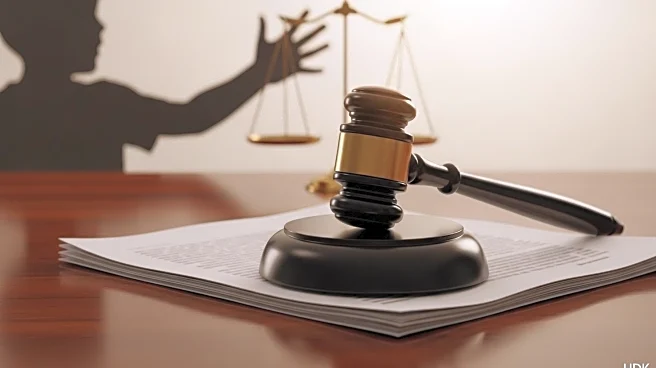What's Happening?
A federal judge in Arizona has temporarily blocked the Trump administration from deporting dozens of Guatemalan and Honduran children who arrived in the U.S. alone. U.S. District Judge Rosemary Márquez issued a preliminary injunction, expressing concerns about the government's preparedness for deportation. The ruling extends protection for these children, who are currently living in shelters or foster care, until at least September 26. The lawsuit, filed by the Florence Immigrant & Refugee Rights Project, represents 57 Guatemalan children and 12 Honduran children, aged 3 to 17. The Trump administration had planned to reunite these children with their parents abroad, but the court found no evidence of coordination between the U.S. and foreign governments. The administration had notified shelters to prepare for immediate deportation, with some children nearly boarding planes to Guatemala.
Why It's Important?
This ruling highlights the ongoing legal and humanitarian challenges surrounding immigration policies in the U.S. The decision to block deportations underscores the judicial system's role in scrutinizing executive actions, particularly those affecting vulnerable groups like unaccompanied minors. The case reflects broader debates on immigration policy, family reunification, and the rights of migrant children. The outcome could influence future legal standards and government practices regarding deportation and family reunification efforts. Stakeholders such as immigration advocates, legal experts, and policymakers are closely monitoring the situation, as it may set precedents for similar cases.
What's Next?
The Trump administration is expected to challenge the ruling, seeking legal validation for its deportation plans. The case may proceed through higher courts, potentially reaching the Supreme Court if significant legal questions arise. Meanwhile, advocacy groups will likely continue to push for the children's right to legal representation and a fair hearing. The administration's next steps could involve revising its approach to family reunification and deportation, considering the court's concerns. Political leaders and civil society groups may engage in discussions to address the broader implications of immigration policy and its impact on children.










